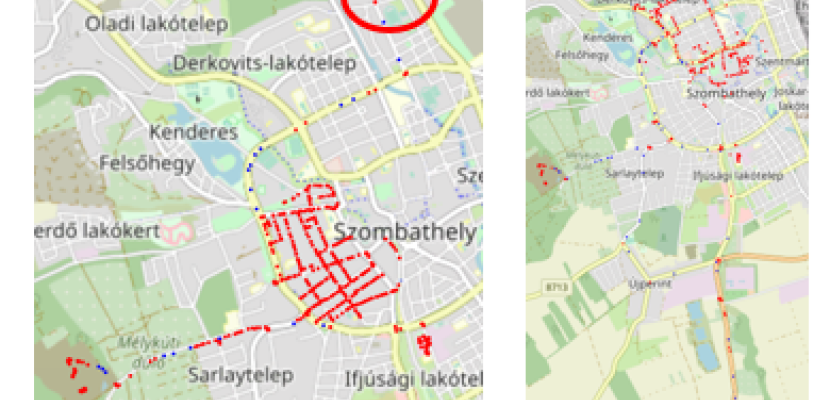
Route planning optimization of waste collection vehicles with the help of open data

About this good practice
This good practice aligns with the goals set out in the Szombathely2030 policy document. One of the policy's main aims is to become a green and smart city integrating circular economy, green urban mobility, and smart city solutions. With growing urban populations, efficient waste management is increasingly relevant. In Szombathely the urban districts vary in size and population. The municipal company-Szova Nonprofit Zrt.- responsible for waste management was interested in checking whether changes in the district boundaries including the routes were needed, how the vehicles were being utilised, and if there were unnecessary running times or unused capacity of the vehicles, and what factors determine the amount of waste collected in each district.
PBN elaborated a methodology, compiled a proposal for the organization in charge. GPS data, running times, working areas of the waste collection vehicles were examined and analyzed on OpenStreetMap. Different kinds of data types were provided by the company that were integrated into OpenStreetMap. PBN also tried to explain how the amount of waste collected in each district depends on the district's population. This was essential for the later implementation of selective waste collection bag system because in Szombathely the not-recycled part of municipal waste unfortunately represents a high proportion.
Benefi:
Municipality of Szombathely-responsible for waste collection
SZOVA Nonprofit Zrt-data owner
PBN –solution owner
Citizens
Expert opinion
Resources needed
Data types: GPS data, running times, working areas of the garbage trucks, the amount of waste collected from each zone
Open data – Open Street Map: number of residents in areas, cartographic data
Human resources: 2 people, 2 months - ~5000EUR
Evidence of success
PBN revealed opportunities for the city to increase recycling. The evidence of success is that the city council has decided to extend the selective waste bag system to the residential areas, as this is proving to be much more efficient than the waste collection island stations.
We received positive feedback from the municipality since they are in daily contact with the citizens.
Potential for learning or transfer
This initiative directly addresses the Interreg programme's goals by enhancing the quality of public services and contributing to economic growth. The solution can be scaled to other municipalities, adapting to different sizes and types of urban areas, making it a versatile solution for municipalities facing similar challenges. Insights from this project can inform policy decisions related to urban planning, transportation, and environmental sustainability. Data analysis can continually improve the efficiency of waste collection combining GIS, GPS, and data analytics for innovative problem-solving. In the OD4Growth project, this practice fits particularly well since one of the focuses is:OD to increase quality standards of public services addressed to citizens.The practice showcases how open data can be used to significantly improve the efficiency and effectiveness of waste collection services, directly benefiting citizens through better urban management and environmental conservation.

